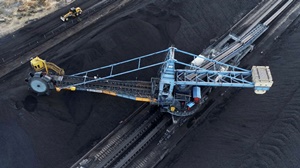
Almost a month after the damning report of short-seller Hindenburg Research on the Adani Group that claimed that the seven stocks within the group were about 85 per cent overvalued, one of the group's stocks, Adani Total Gas, closed at Rs835 on the BSE, down nearly 79 per cent from its 24 January level, almost close to reaching that valuation The American stock market manipulator Hindenburg Research LLC, an activist short seller that bets against companies that the firm finds overvalued, is now betting on Adani Group by engineering a sudden fall in its stock prices. A short seller uses a market strategy to sell shares that he/she or the firm does not actually own. A short-seller may borrow a company’s shares from a broker at the current market price but agreeing to buy it at a lower price by predicting a fall in the stock’s price. If the stock price falls, the seller can then buy the shares at a lower rate, thus making a huge profit. Founded by Nathan Anderson in 2017, the New York City based Hindenburg holds ‘short’ positions on Adani securities through derivatives and US-traded bonds and counts on this ‘buy low, sell high’ strategy to hammer Adani Group shares for future gains. At the current level, when the underlying Adani stocks undergo a fall in their market prices, the short position promises Hindenburg a huge profit. The larger the fall more will be Hindenburg’s gains. Hindenburg has been following the shorting strategy in the securities market for a long time. According to data compiled by Bloomberg, Hindenburg has targeted almost 30 companies since 2020. He has succeeded in pulling down these stocks by more than 15 per cent in a day in almost all cases once the accusations are made public. Last year, the short-seller made a successful deal out of Elon Musk’s move to take over Twitter. Once Hindenburg announced its short position on Twitter, the social media platform’s share plummeted from $49.80 to $37.39. Later on, the research firm even took a ‘long’ position on Twitter, making a profit on that trade as well. In this case, they followed a ‘buy low, sell high’ strategy.
Adani Group is larger than any of the companies that Hindenburg has targeted so far, and is its biggest bet yet. Hindenburg’s short position on Adani Group companies have lost around Rs4 lakh crore in the two trading days since the American firm publicised the report. The magnitude of Hindenburg’s short position is, however, not clear. Adani Group had accused Hindenburg of sabotaging its FPO prospects with ‘baseless and stale’ arguments. Even before any scrutiny of the research firm’s arguments, the report had badly affected the group’s financing plans by forcing Adani to abandon its Rs20,000 crore share sale. The company, whose share sale had a lower price band of Rs3,112, closed at an even lower rate of Rs2,762 on the BSE on 23 February, implying that retail investors can acquire the share from the primary market at a lower price. But, if the market sentiment over the past two trading sessions is anything to go by, Adani Group’s massive expansion plan has certainly taken a big hit. It is also clear that it will not be easy for Adani Group to reclaim the market cap it has lost. In its January 24 report on the Adani Group, Hindenburg Research had said that the seven stocks within the group were about 85 per cent overvalued. And, now, almost a month after the damning report, one of the group's stocks, Adani Total Gas, closed at Rs835 on the BSE, down nearly 79 per cent from its 24 January level, almost close to reaching that valuation, while two more - Adani Green Energy and Adani Transmission - are nearing the 85 per cent market loss. BSE data also showed that at Wednesday's close at Rs539, Adani Green Energy is now down 82 per cent from its 52-week high of Rs3,048 while from its pre-Hindenburg close it has lost 72 per cent. Along with it, Adani Transmission is down 81 per cent from its 52-week high and 71 per cent from its 24 January close. Gautam Adani has slipped four positions on the Forbes’ global real-time billionaires list since the Hindenburg attack started. He is now on the 7th position with a net worth of $96.6 billion. According to Forbes, Asia’s richest individual lost 19 per cent of his net worth in the last trading session alone. Combined result of this sustained loss in stock prices has also wiped off a little over 60 per cent of the group's market value in nearly a month. Other than market's negative perception about the group that is based on Hindenburg report, a serious fallout of the report was decision by the French energy major to put on hold all future investments in the Adani Group till an audit of the Indian conglomerate's affairs was complete, market players said. Hindenburg Research views itself as a savior of investors from man-made disasters in the financial markets. The objective, however, is wider than stated as Hindenburg has its skin in the game as well. While the Hindenburg report wiped out all of Gautam Adani's 2022 wealth gains, critics say the Hindenburg report as the best thing to happen to the Adani Group. It will slow the group’s speed of expansion and diversification, and force its financiers to be diligent and cautious about over leveraging in future. Source: https://www.domain-b.com/
Categories: Finance,
India,
Market,
Media
